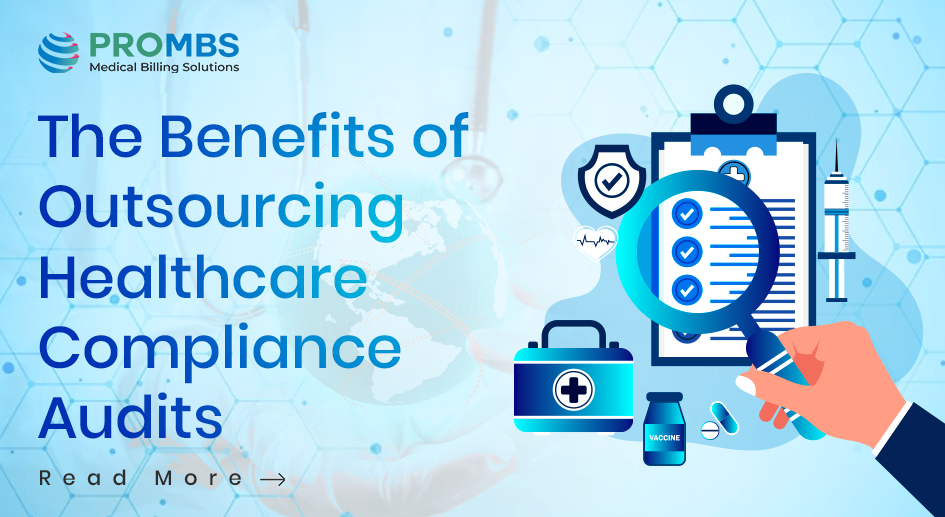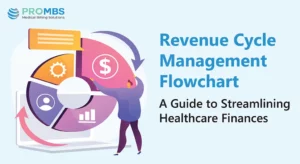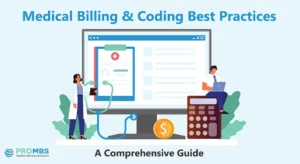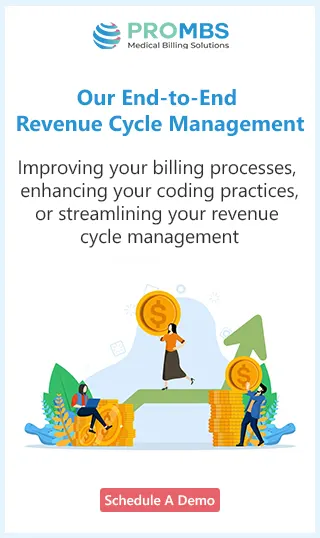Healthcare providers constantly struggle to keep up with new rules and regulations while delivering excellent care. Outsourcing compliance audits, which is becoming more common, is a smart and efficient way to address this challenge. This article dives into why this trend is growing, with insights from the experts.
Hiring outside experts to do compliance audits gives healthcare organizations a big advantage. These experts have deep knowledge and experience, allowing them to thoroughly assess how well the organization follows the rules. This frees up internal staff to focus on day-to-day tasks and using resources efficiently, which ultimately leads to better patient care.
This article explains the benefits of outsourcing compliance audits in healthcare, like saving money, reducing the risk of getting in trouble, and running things more smoothly. By understanding this smart strategy, healthcare professionals can make informed choices to stay on top of regulations and, most importantly, improve patient care.
Understanding Healthcare Compliance Audits and Its Importance
Regular check-ups, called compliance audits, are essential in healthcare. They make sure doctors, hospitals, and other providers follow the rules, best practices, and ethical guidelines. These audits are crucial for keeping patient care high quality, protecting patient information, and ensuring healthcare organizations are honest.
- Ensuring Regulatory Compliance:
Healthcare audits exist to make sure hospitals, doctors, and other providers follow the rules set by the government. These rules, like HIPAA, ACA, and CMS guidelines, are there to protect everyone. Auditors carefully examine records and how things are done to find any areas where the rules might not be followed exactly. They then suggest ways to fix these problems so the healthcare provider doesn’t get in legal trouble or have to pay fines.
- Protecting Patient Safety and Care Quality
Keeping patients safe is the top priority in healthcare. Regular check-ups, called compliance audits, help find anything that could put patients at risk. This includes things like giving the right medication and preventing infections. By catching these issues early, audits help doctors and nurses provide the best possible care.
- Safeguarding Data Security and Privacy:
With more medical records stored digitally these days, keeping patient information safe is more important than ever. Compliance audits check how well healthcare organizations protect this information from unauthorized access and leaks. By following the recommendations from these audits, healthcare providers can prevent data breaches and keep their patients’ trust.
- Mitigating Financial Risks:
Healthcare audits aren’t just about patient care, they also check how hospitals and doctors bill for their services. This makes sure they’re following the rules and billing correctly. By catching mistakes early, audits can save healthcare providers money and avoid legal trouble for overcharging.
- Promoting Ethical Behavior:
Doing the right thing is key for any hospital or doctor’s office. Compliance audits make sure they’re following ethical guidelines, like avoiding conflicts of interest and dealing with suppliers fairly. By acting ethically, healthcare providers build trust with their patients and the community.
Types of Healthcare Compliance Audits
- Internal Compliance Audits: Ensuring Adherence to Internal Policies
Regular internal check-ups, like audits, are essential for any healthcare provider. These audits make sure the hospital or doctor’s office follows its own rules and best practices to avoid legal trouble and operate more efficiently.
- External Compliance Audits
Outside auditors come in every so often to give healthcare providers a thorough check-up. This is to make sure they’re following all the government rules and standards set by different organizations. These audits are important because they can affect a provider’s reputation, funding, and even the services they can offer.
- HIPAA Compliance Audits: Safeguarding Patient Data Privacy
HIPAA audits check to make sure patients’ medical records are safe and private, especially since most records are now electronic. These audits are crucial to ensure healthcare providers follow HIPAA rules and keep patient information confidential.
- Billing and Coding Compliance Audits: Accuracy and Transparency in Financial Operations
Billing audits make sure hospitals and doctors are charging correctly for their services. This helps prevent fraud and ensures everyone gets paid fairly. It also makes sure healthcare providers follow the rules so they don’t get in trouble.
- Quality of Care Audits: Enhancing Patient Safety and Outcomes
Quality audits focus on how well patients are treated. They check things like if diagnoses are accurate, treatments work well, and patients have good outcomes. By finding areas for improvement, hospitals and doctors can keep patients safer, provide better treatments, and make sure patients are happier with their care.
- Medicare and Medicaid Audits: Navigating Government Program Compliance
Hospitals and doctors who treat patients under government programs like Medicare and Medicaid get checked by a group called CMS to make sure they’re following the program’s rules. This helps ensure these programs are used correctly and keeps hospitals and doctors in good standing so they can continue offering these services to patients who need them.
Enhancing Patient Care: The Benefits of Outsourcing Compliance Audits
Top-notch care for patients requires following complex healthcare rules. But dealing with these rules can be a hassle, taking time and resources away from treating patients.
Outsourcing compliance audits can be a game-changer for hospitals and doctors. Here’s how using outside experts for these audits can directly benefit patient care
Expertise and Specialization
By outsourcing compliance audits, hospitals and doctors gain access to experts who know healthcare rules inside and out. These experts can make sure the healthcare provider follows the latest regulations and avoids any confusion. This gives hospitals and doctors more confidence that they’re meeting all the requirements.
Focused Resources and Reduced Burden
Doing compliance audits themselves can take a lot of time and effort away from what hospitals and doctors should be focusing on – treating patients. By outsourcing these audits, healthcare providers can free up their staff to spend more time delivering the best possible care. This ultimately benefits patients because they get more attention from their doctors and nurses.
Enhanced Accuracy and Objectivity
Outside experts for audits can give a fresh look at how a hospital or doctor’s office is following the rules. They aren’t afraid to point out any areas where things could be improved. This helps healthcare providers identify weaknesses in their care protocols and make changes to provide better care for patients.
Cost-Effectiveness
Doing compliance audits themselves can be expensive for hospitals and doctors. They’d need to hire and train new staff, buy special software, and spend a lot of time on audits. Outsourcing these audits is a more budget-friendly option. Instead of ongoing costs, healthcare providers simply pay for the specific service. This saved money can then be used to improve patient care, like buying new equipment or offering new treatments.
Continuous Monitoring and Risk Mitigation:
Following the rules in healthcare is a constant job. By outsourcing audits, hospitals and doctors can get regular check-ups to find any problems early on. This helps them fix issues before they become bigger and avoids putting patients at risk. Overall, it helps provide safer care for patients.
Scalability and Flexibility:
The type of compliance audits a hospital or doctor’s office needs can change depending on new rules or if they’re expanding. Outsourcing lets them pick and choose the audits they need, whether it’s a checkup for the whole organization or a focused look at just one department. This flexibility helps healthcare providers keep up with changing requirements without getting overwhelmed.
In short, outsourcing compliance audits can be a smart move for hospitals and doctors. It gives them access to experts, saves money, and helps them avoid mistakes. By using outside auditors, healthcare providers can get a fair assessment and make sure they’re following the rules. This frees them up to focus on what matters most: providing excellent care to their patients. Outsourcing can be a great way to take your compliance efforts to the next level.
At Pro Medical Billing Solutions, we understand compliance can be a hassle for healthcare providers. That’s why we offer outsourcing solutions tailored to your specific needs. Our team of experts can handle everything so you can focus on what you do best: taking care of patients.





























